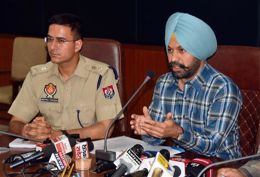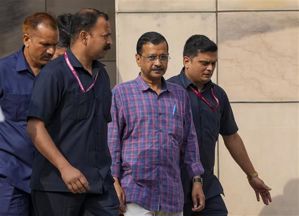S.C. Vasudeva
Q. I am a senior citizen and a retired government employee of Punjab Government with my pension income above tax exemption slab of Rs 2,50,000 for the current financial year besides income from other sources such as interest on my fixed deposits in nationalised bank. I need your guidance on the following issues:
1. In order to save tax to the maximum extent, can I gift some amount to my married daughter instead of going for a tax-saver fixed deposit for a lock-in period of five years? My daughter is a housewife.
In that case, can I claim rebate in my total income for the amount so gifted under Section 80C of the Income-tax Act or not?
2. Is there any maximum limit for the gift amount?
— Anil Kumar
A. (i) You would not be entitled to claim any deduction under Section 80C of the Income-tax Act 1961 (the Act). There is no provision in the Act for allowing such a deduction. (ii) The Gift Tax Act 1958 is currently not in force and therefore a gift can be made to a relative defined under Section 56 of the Act without any limit. The word relative for this purpose covers son and daughter. However, gift received from a person who is not covered under the aforesaid section, is exempt to the extent of Rs 50,000 only. If the gift received is more than the said amount from any of those persons who are not covered under the exempted category, the total amount so received would be treated as income from other sources in the hands of the recipient.
Q. My father died during the Bangladesh war. The Rajasthan Government allotted around 15 acres of agriculture land in the name of my mother in Rajasthan. My mother died on February 28, 2016. She made a registered will in favour of my elder brother for the entire land in July, 2010. Later, in 2015, she cancelled this will and made another will in favour of two brothers and two sisters. Before she died, she made a third will on an inland letter issued by post office mentioning the previous two wills are cancelled and that this is her last will in favour of both the sons. The will written on such a letter was sent to me at Chandigarh by registered post by the executor of the will. It was witnessed by two other persons after the death of my mother as they had put their signature with date. My mother was living with my sister in Haryana at the time of her death. My query is whether the third will shall supersede the other two wills and eligible for getting probate from the court of law and in any case whether my eldest sister who was married and not dependent on my father is eligible to contest the will?
— Ravinder Sharma
A. The facts given in the query indicate that the third will executed by your mother was not attested by two witnesses who have seen the testator sign the will. The provisions of Indian Succession Act, 1925 deal with the execution of will by a testator, not being a soldier employed in an expedition or engaged in actual warfare, or an airman so employed or engaged, or a mariner at sea. The testator in accordance with provisions of the said Act is required to follow the rules given below while executing a will:
(a) The testator should sign or should affix his mark to the will, or it should be signed by some other person in his presence and by his direction.
(b) The signature or mark of the testator, or the signature of the person signing for him, should be so placed that it would appear that it was intended thereby to give effect to the writing as a will.
(c ) The will should be attested by two or more witnesses, each of whom has seen the testator sign or affix his mark to the will or has seen some other person sign the will, in the presence and by the direction of the testator, or has received from the testator a personal acknowledgement of his signature or mark, or of the signature of such other person; and each of the witnesses should sign the will in the presence of the testator, but it would not be necessary that more than one witness be present at the same time, and no particular form of attestation shall be necessary.
The third will executed on an inland letter does not seem to be in accordance with the aforesaid rules. It may, therefore, be difficult to get the same probated. In case the second will was executed in accordance with the above rules, your sister would be entitled to her share in the property of the deceased and she would be entitled to contest the latest will made on an inland letter.
Note: Readers can send their queries at [email protected]



























